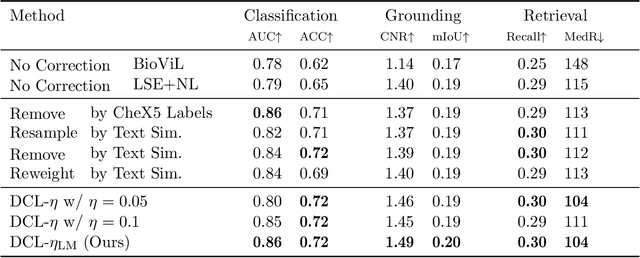Sample-Specific Debiasing for Better Image-Text Models
Paper and Code
Apr 25, 2023



Self-supervised representation learning on image-text data facilitates crucial medical applications, such as image classification, visual grounding, and cross-modal retrieval. One common approach involves contrasting semantically similar (positive) and dissimilar (negative) pairs of data points. Drawing negative samples uniformly from the training data set introduces false negatives, i.e., samples that are treated as dissimilar but belong to the same class. In healthcare data, the underlying class distribution is nonuniform, implying that false negatives occur at a highly variable rate. To improve the quality of learned representations, we develop a novel approach that corrects for false negatives. Our method can be viewed as a variant of debiased constrastive learning that uses estimated sample-specific class probabilities. We provide theoretical analysis of the objective function and demonstrate the proposed approach on both image and paired image-text data sets. Our experiments demonstrate empirical advantages of sample-specific debiasing.
 Add to Chrome
Add to Chrome Add to Firefox
Add to Firefox Add to Edge
Add to Edge